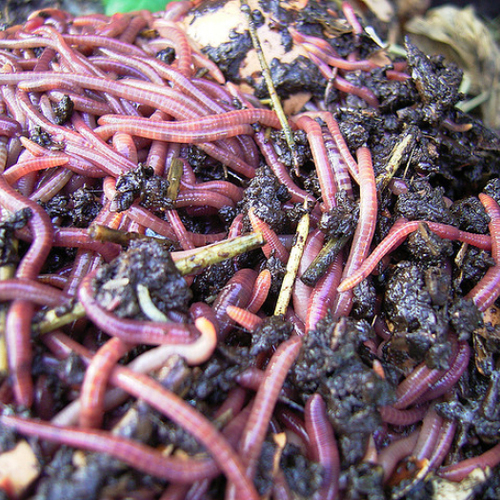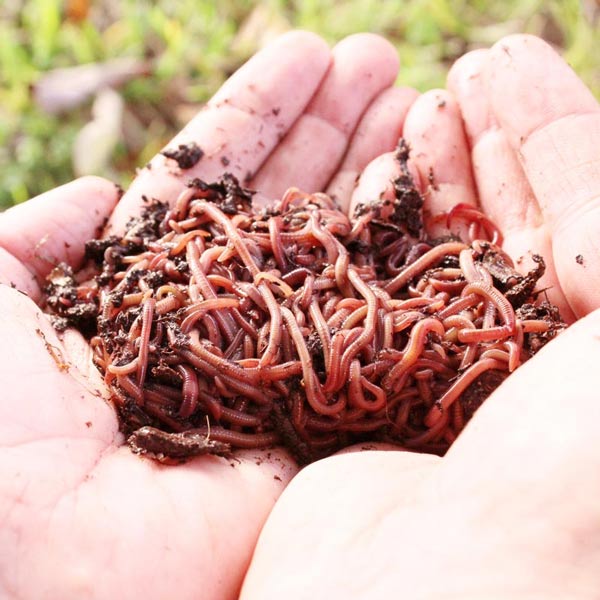Red wigglers: For worm bins
Top Benefits of Using Red Wigglers for Vermiculture
The usage of red wigglers, or Eisenia fetida, in vermiculture presents a number of compelling benefits that extend past mere composting. As we discover these benefits better, it ends up being evident that the ramifications of integrating red wigglers right into agricultural techniques are both profound and significant.

Enhanced Soil Fertility
Boosted dirt fertility is an essential component of sustainable farming, and red wigglers play an essential duty in this procedure. As a types of earthworm, red wigglers (Eisenia fetida) are particularly effective in boosting dirt health and wellness through their all-natural habits and biological functions. They eat organic waste, simplifying right into nutrient-rich spreadings that considerably improve dirt framework and nutrient availability.
The castings generated by red wigglers are abundant in vital nutrients, consisting of nitrogen, phosphorus, and potassium. In addition, the visibility of red wigglers in the soil enhances microbial activity, more adding to nutrient cycling and soil oygenation.
Integrating red wigglers into farming practices not only boosts soil fertility yet also minimizes the need for synthetic plant foods, aligning with natural farming principles. Using red wigglers in vermiculture represents a sustainable technique to dirt management, eventually sustaining the long-lasting stability of agricultural systems.
Rapid Decay Refine
The rapid decomposition process assisted in by red wigglers is a remarkable phenomenon that substantially profits both composting and dirt wellness. These earthworms, known clinically as Eisenia fetida, play a vital duty in breaking down organic issue successfully. By eating kitchen scraps, plant debris, and other organic waste, red wigglers convert these materials into nutrient-rich castings at a sped up price.
The procedure starts as the worms consume raw material, where it is then digested in their specialized gizzards - red wigglers. This malfunction not only minimizes the quantity of waste however likewise boosts the schedule of crucial nutrients. As red wigglers eliminate spreadings, they launch a result that is bristling with beneficial microorganisms, which further help in disintegration and enriches the compost
(redworms for composting)Garden enthusiasts and farmers can enjoy quicker access to premium compost, consequently improving their capability to support plant growth and general soil vitality. The efficiency of red wigglers in the decomposition process is thus essential for sustainable composting practices.
Improved Soil Framework

Additionally, the castings produced by red wigglers are abundant in helpful bacteria and nutrients, which promote a healthy and balanced dirt community. These castings boost the soil's moisture retention ability, minimizing the need for constant watering. As the raw material is damaged down into better bits, it enhances the dirt's aggregate security, stopping erosion and compaction.
The visibility of red wigglers likewise fosters a varied microbial community, which plays a crucial function in nutrient biking. This diversity better improves dirt fertility and durability, allowing it to sustain a wide array of plant life.

Decrease of Waste
Vermiculture using red wigglers plays an essential function in the reduction of waste, especially organic waste that would or else end up in landfills. The procedure of vermicomposting properly changes different kinds of organic materials, such as food scraps, lawn waste, and paper products, into nutrient-rich vermicast. This not just diverts waste from land fills but likewise lessens the ecological impact connected with waste decay in these websites, which often produces dangerous greenhouse gases like methane.
By using red wigglers, people and businesses can manage their organic waste much more sustainably. These worms have an exceptional capacity to eat significant amounts of organic product, converting it into valuable compost that can be used to enrich soil. This process not only decreases the volume of waste but likewise extends the life expectancy of garbage dumps, eventually adding to squander administration services.
Moreover, embracing vermiculture methods encourages a culture of recycling and sustainability. As more individuals identify the advantages of composting with red wigglers, the cumulative influence on waste reduction becomes increasingly significant. In summary, making use of red wigglers important site for vermiculture gives a reliable method for minimizing organic waste while enhancing ecological stewardship.
Raised Microbial Task
While taking part in vermicomposting, the presence of red wigglers considerably boosts microbial task within the composting system. These earthworms produce a favorable environment for beneficial microbes by freshening the compost and damaging down natural material. As the worms consume food scraps and various other organic waste, they excrete nutrient-rich spreadings, which act as a habitat and food resource for diverse microbial communities.
The raised microbial task helps with the quick disintegration of raw material, causing a lot more efficient vitamins and mineral biking. This process not just speeds up garden compost growth but additionally improves the total high quality of the end product. Microorganisms, such as microorganisms and fungi, grow in the worm-rich atmosphere, leading to a higher concentration of crucial nutrients like nitrogen, phosphorus, and potassium in the compost.
Moreover, the collaborating relationship in between red wigglers and microbes adds to virus suppression and boosts soil wellness. By fostering a durable microbial population, vermicomposting with red wigglers promotes biodiversity in the garden compost, ultimately causing richer, healthier soil for plant development. Thus, the function of red wigglers in increasing microbial activity is essential for effective and sustainable vermiculture methods.
Conclusion
In summary, the application of red wigglers in vermiculture offers many benefits, including improved dirt fertility, efficient decay of raw material, and enhanced dirt framework. Their distinct burrowing habits not just advertises better water retention however additionally aids in the reduction of waste, adding to lasting waste management practices. Moreover, the raised microbial activity promoted by their spreadings sustains a thriving community, eventually bring about much healthier plants and more resistant farming systems.